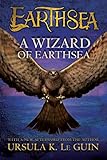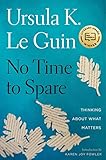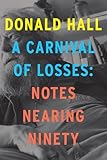Never curse a slow elevator. Like a book or a song, it may offer lessons in grace or about growing older with truth and dignity.
I was once on an aging contraption wheezing its way from floor one to two … to six, when the unobstructed honesty of a child under age 7 and a person over age 70 was revealed.
Following long contemplation entirely void of self-consciousness, a young boy accompanied by his mother asked the elderly woman sharing our ride, “Why are you wearing a mask?”
She, a ballet company director whose lined face grew even more wrinkled as she bent forward and smiled, answered with a gentleness that defied what I knew was her usual habit—of shouting maniacally at dancers whose failed pirouettes or bent arabesque legs she took as personal insults. “I am not wearing a mask,” she crooned. “I’m just very, very old.”
The boy eyed his mother, perhaps wondering when her face, too, would turn into a map grooved by time, regret, smiles, the sun’s rays. He regarded the older woman, this time not staring, but actively, his eyes exploring each nook and cranny of her face. Accommodatingly, she remained nearly nose-to-nose. “It’s a very, very nice old,” he said at last. The woman straightened her spine, pleased a misconception had been shed and at the compliment. I, the observer, admired the straight-speaking pair and the care of their slow-paced exchange.
Taking that lesson into the literary world, childlike wonder, adult wisdom, and good humor are never lost in the work of two wordsmiths: Ursula K. Le Guin and Donald Hall. These artists died in 2018. The only comforts are found in the works they leave behind.




 In addition to Le Guin’s poems, essays, book reviews, nonfiction, fantasy and award-winning science fiction novels (The Left Hand of Darkness, The Lathe of Heaven, The Earthsea Cycle series and more), she, in her last years, wrote blog posts. A marvelous collection, No Time to Spare (December 2017, Houghton Mifflin Harcourt), was inspired by Le Guin’s reading of The Notebook, Portuguese writer José Saramago’s blog-turned-book.
In addition to Le Guin’s poems, essays, book reviews, nonfiction, fantasy and award-winning science fiction novels (The Left Hand of Darkness, The Lathe of Heaven, The Earthsea Cycle series and more), she, in her last years, wrote blog posts. A marvelous collection, No Time to Spare (December 2017, Houghton Mifflin Harcourt), was inspired by Le Guin’s reading of The Notebook, Portuguese writer José Saramago’s blog-turned-book.
No Time to Spare divides into four sections interrupted by blogs about Pard, her cat. “The Annals of Pard” serve at the most superficial level as respite—breathers from what are mild to heavy duty miniature essays on “Going Over Eighty,” The Lit Biz,” Trying to Make Sense of It,” and “Rewards.” Read deeply (to read Le Guin any other way is foolishness), the storytelling swings with signature humor and forthrightness from territorial battles with a feline to self-reflective wrestling or victories involving beliefs, curses, music and not writing “the great American novel.” Throughout, mortality (Le Guin’s eventual and that of a very dead mouse) rattles and moans or ironically, affirms Le Guin’s childlike vitality upon reaching eight decades of life.
Among the essays, “The Diminished Thing” defines fortunate aging as retaining intellectual, practical and emotional vigor and gaining extraordinary breadth and depth of understanding. Aged intelligence, she writes, is recognizable and “if you have the sense of a bean sprout you know you’re in a rare and irreproducible presence.”
Relatedly, “Catching Up, Ha Ha,” written on the eve of Le Guin’s 85th birthday, protests the idea “that anyone over seventy-five who isn’t continuously and conspicuously alive is liable to be considered dead.” Confronting PR people, tired teachers and lazy students who might wish for the author to identify if not produce “the great American novel,” Le Guin asks, “Who cares?” Art, she later states in “TGAN Again,” is not “a horse race” and literature is not an Olympic competition.
If every essay does not hit with equal thrust, it’s impossible to overlook the craft behind the writing itself. The language on occasion is deliberately polemic, edgy and rhythmically irregular, but rarely preachy. Combining craft and profound content, there are “Belief in Belief” and a double-header on the music of Philip Glass and John Luther Adams. Le Guin constructs deep philosophical arguments over the misuse of one word in the former and captures the lyricism and rapture of a live performance in the latter’s few hundred words. It’s no easy task, but Le Guin makes it appear so.
Going over 80 with Le Guin is wondrous. Reincarnation would be a fine belief to have, but short of that, thank goodness Le Guin’s books are immortal.

 Hall died in June 2018 at age 89. Foreswearing poetry in 2010, he continued to write and live in his New Hampshire farm. A Carnival of Losses: Notes Nearing Ninety (July 2018, Houghton Mifflin Harcourt) chronicles Hall’s exploits on the cusp of becoming a nonagenarian. Like his Essays After Eighty, the new collection offers the many pleasures of reading Hall: song-like phrasing, quick wit mixed with anger that rides a bitter border but never plunges into mean-spiritedness or hate. There’s raw emotion and vulnerability, especially discoverable in confessions related to loss, professional envy, and essays in which he engages in self-loathing or laughing-at-self over his aging physique.
Hall died in June 2018 at age 89. Foreswearing poetry in 2010, he continued to write and live in his New Hampshire farm. A Carnival of Losses: Notes Nearing Ninety (July 2018, Houghton Mifflin Harcourt) chronicles Hall’s exploits on the cusp of becoming a nonagenarian. Like his Essays After Eighty, the new collection offers the many pleasures of reading Hall: song-like phrasing, quick wit mixed with anger that rides a bitter border but never plunges into mean-spiritedness or hate. There’s raw emotion and vulnerability, especially discoverable in confessions related to loss, professional envy, and essays in which he engages in self-loathing or laughing-at-self over his aging physique.
Hall’s protests are more subtle but equal to Le Guin’s. From the opening essay: “In your eighties you are invisible. Nearing ninety you hope nobody sees you.” And there are victorious proclamations: “As I write toward my nineties I shed my skin. I tell short anecdotes, I hazard an opinion, speculate, assume, and remember.”
From 1957 to 1975, Hall was an assistant professor of English at the University of Michigan. In Ann Arbor, he met poet and student Jane Kenyon. Eventually, they married and in 1975 moved to Eagle Pond Farm. (A delight in Carnival is the 119-word essay “Dictaters,” which involves the farm’s name. Even the spell-check generation will appreciate the typo-angle and will not object to its short, internet-era length.)
Hall often wrote about his life with Kenyon before and after her death in 1995 due to leukemia. Her work and death serve as an underlying touchpoint in essays on selected poets and absolutely in “Necropoetics,” a chapter about resuming his poetry after her death.
“In the months and years after her death, Jane’s voice and mine rose as one, spiraling together the images and diphthongs of the dead who were once the living, our necropoetics of grief and love in the unforgivable absence of flesh.”
As always in the work of Hall, shadowy nostalgia, tender personal memories, and a deep love of things old and slow, like baseball, uplift. A reader who might otherwise become morose is therefore comforted by the stories’ underlying warmth. Hope steeped in truth arrives in the book’s final essays, “Way Way Down, Way Way Up” and “Tree Day.” As it is with Le Guin, Hall acknowledges that “emotional intricacy and urgency of human life expresses itself most fiercely through contradiction.” Messy human life and vulnerability exists in the fold: In the skin of a newborn or in old age wrinkles, in skewed or straightforward perspectives, in honest words plainly spoken.
I was thinking about artists and aging when I learned the great Aretha Franklin had died all too early at age 76. Franklin, for many of us, changed the significance and meaning of the words “think” and “respect.” The song, “Think,” was written by Franklin and is both a protest and declaration on freedom. Her emphatic version of R-E-S-P-E-C-T, based on Otis Redding’s original song, erects seven letter-size monuments that add up to dignity. The power of Franklin’s words changed and changes hearts and human behavior, as did and do Le Guin’s or Hall’s finely written phrases and sentences.
So the next time you’re on a slow-moving elevator, don’t curse; take a moment to think. Speak to and respect the people riding along, regardless of age, gender, facial wrinkles, or other classifications. And on the chance that elevator gets stuck between floors, carry a book by Le Guin or Hall or hum a Franklin tune to pass the time.
Image: Flickr/Gwydion M. Williams









